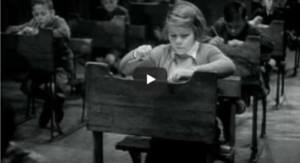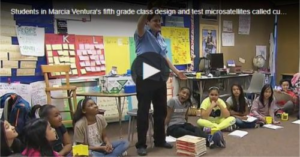Creating Student Innovators In Our Schools
Blog
When information is ubiquitous and free, and when basic education is available to billions of people worldwide, only one set of skills can ensure this generation’s economic future – the capacity for innovation.
Here are a few questions to consider as you reflect on the status of our current educational systems and how they need to change to better address the future needs of our students.
- What are the skills of innovators?
- Why is innovation so critical to the future and how we educate our youth?
- What must parents, teachers, mentors, and employers do to develop the capacities of many more young people to be the innovators that they want to be—and that we need them to become?
- What do the best schools and colleges do to teach the skills of innovation?
- What are some of the most forward-looking employers doing to create a culture of innovation?
 Watch this short video about the future of learning.
Watch this short video about the future of learning.
According to business leaders, there is a set of core competencies that students will need to have to be successful in the future. Tony Wagner who has spent a lot of time researching the skills that students will need to be successful in future says ~ that workers of tomorrow will need several skills and dispositions to be successful in the careers of tomorrow. The schools that are “getting it right” in Tony’s opinion, understand that in the innovation era, while academic content is important, knowledge is a commodity. People can “google” anything so knowledge is no longer as important as it once was in our world. The world no longer cares how much our graduates know, but it cares about what students can do with their knowledge and how they can apply what they know. Self-motivation, empathy, curiosity and perseverance matter and are critical factors to career success.
Watch the following video that show a 5th grade teacher allowing students to explore engineering design in the classroom to create micro-satellites called Cube Sats and students at the high school level participating in real-world internships to deepen their learning and develop the skills they need for their future careers.
Teach & Kids Learn (TKL) offers teachers and schools several self-paced online courses to consider in helping to provide engaging and innovation-focused learning environments for students. Please review the following options for your next professional development opportunity.

